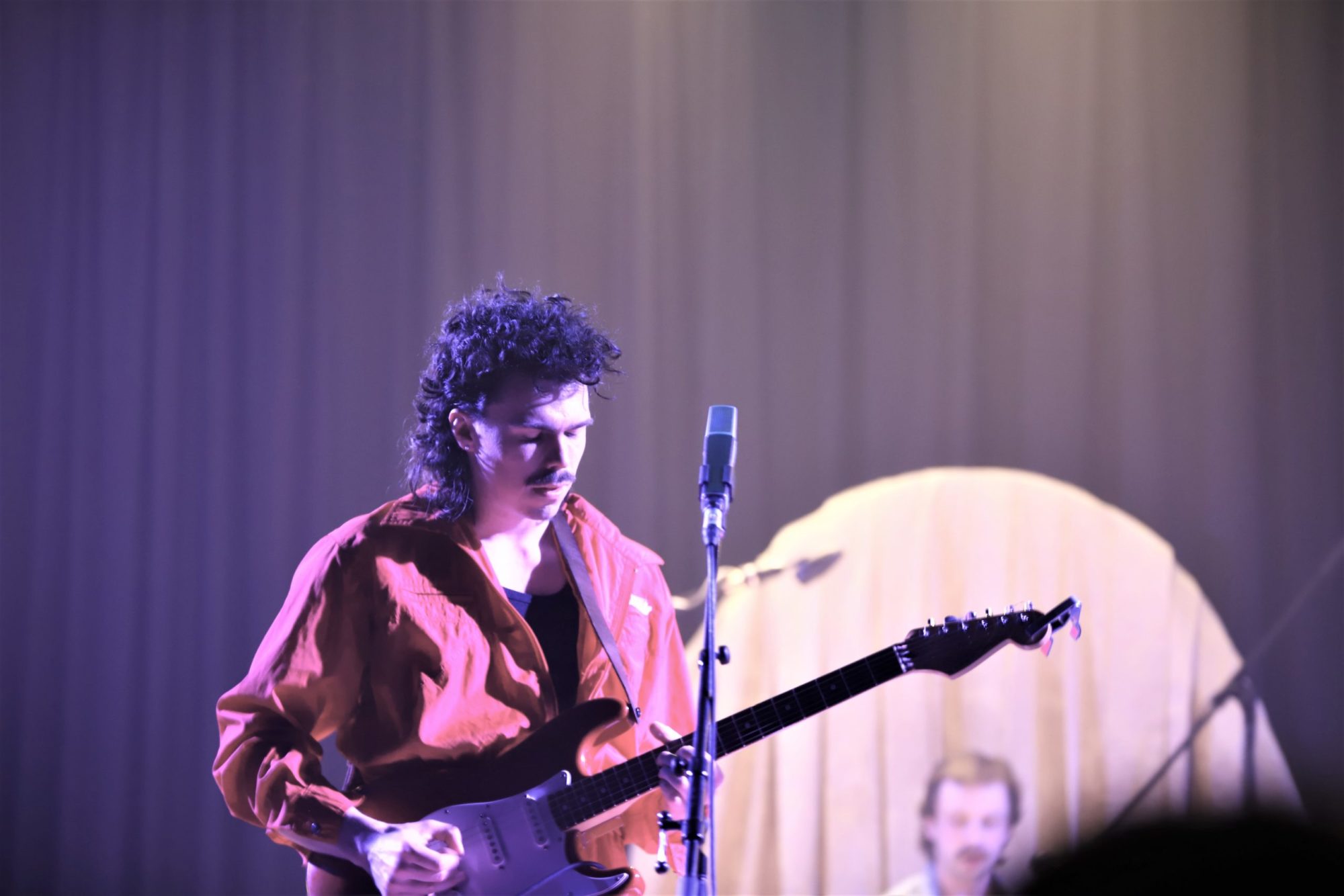By Jeff Friesen

While it isn’t a jazz band in any sense of the word, the Sea and Cake, like many other contemporary Chicago groups, is highly influenced by the genre. Sam Prekop formed the band in 1994 with bassist Eric Claridge, guitarist Archer Prewitt and drummer John McEntire. Fifteen years, eight records as a band and two solo records of his own later, Prekop’s bringing the band to this year’s Jazz Winnipeg Festival. Both his solo projects and a significant part of the Sea and Cake’s material show numerous jazz-like elements: Brazilian rhythms, jazz voicings and simple song structures reminiscent of 1950s model jazz. Sam Prekop may exist outside of the jazz vocabulary, but he’s most interested in its aesthetic. Stylus spoke to the front man of the not-jazz band to talk about his love of jazz and how it has impacted his work with the Sea and Cake.
Stylus: The Sea and Cake will be playing at the Jazz Winnipeg Festival. Is this the first time you will be playing in such a setting?
Sam Prekop: I think it is, yes. We’ve played other festivals with a broad territorial concept behind it, but never a specifically jazz festival. We’ve played with Fred Anderson (a tenor saxophonist, who founded the Association for the Advancement of Creative Musicians in Chicago) but it’s not something that we’ve ever really pursued per se. Jazz has been an important part of my listening career and has had an influence on my career, but technically we’re not really playing jazz.
Stylus: One term sometimes used to describe the Sea and Cake is “post-jazz.” Whether or not this is accurate, it is fairly clear from songs like “Lamont’s Lament” or the more recent “Down in the City” that jazz has been a driving force in your own songwriting. Where does this interest of yours stem from?
SP: I think a lot of the aesthetic of jazz has sort of leeched into what I would like to try to hear in our music. It’s just sort of whatever I’m into at the moment, what I’m really loving at that point, impacts what we play.
Stylus: Are there any particular albums that you’re thinking of?
SP: I’ve always cited Sun Ra as a huge influence on me, [the] melancholy melodics that [are] unique to his writing. That’s always been influencing what I write, you know, trying to sound simpler than it actually is, an unadulterated beauty. Model jazz, even stuff like Miles Davis’ Kind of Blue, that type of structure has been influential. It’s pretty linear and subtle. That would be construed as a definite jazz element of the Sea and Cake, the droney model type of song structures we work with. The one thing [that] usually defines jazz is improvisation, which is something we don’t do a whole lot of. We’re still a tacked-down rock band.
Stylus: For sure. I mean, with you guys it’s always been more about the composition than it has been about improv, something that is different than most jazz, but still not unlike the likes of Sun Ra or Miles Davis. What about the use of electronics, something you have explored a great deal as a band? Do you see a relationship between the Latin rhythms you employ and electronics?
SP: We use electronics sort of in the same way as we use the guitar. But it has always been part of our language and is an important element of our sound. The Brazilian element, I feel like that has sort of ebbed a bit lately. It’s hard to incorporate those types of things without sounding like a bit of a stylist. Treacherous territory.
Stylus: Definitely, and that is certainly noticeable with your most recent record, Car Alarm, which is more of a straight-up rock record. Earlier you mentioned that it’s often what you are listening to at the time that most influences your sound. Is there a specific sound or style that you want to explore further with the Sea and Cake?
SP: Well right now I’m working on a solo electronic album that is very rooted in early musique-concrète stuff, and I have a feeling a lot of those ideas will eventually leech into the Sea and Cake stuff. But the stuff I’m working on right now is pretty unrelated to the Sea and Cake.
Stylus: Has that happened to you in the past with your other solo efforts?
SP: Not as intensely as this time. I mean this stuff is really different, and a lot of people could be shocked if they new it was me making it. It would be hard to make the connection. At least that is how it is in my mind, and I could be completely off the mark. People could find that it sounds like everything else I’ve ever done. I think the sensibilities between the two are not unsimilar—beautiful without being pretty, I hope.

